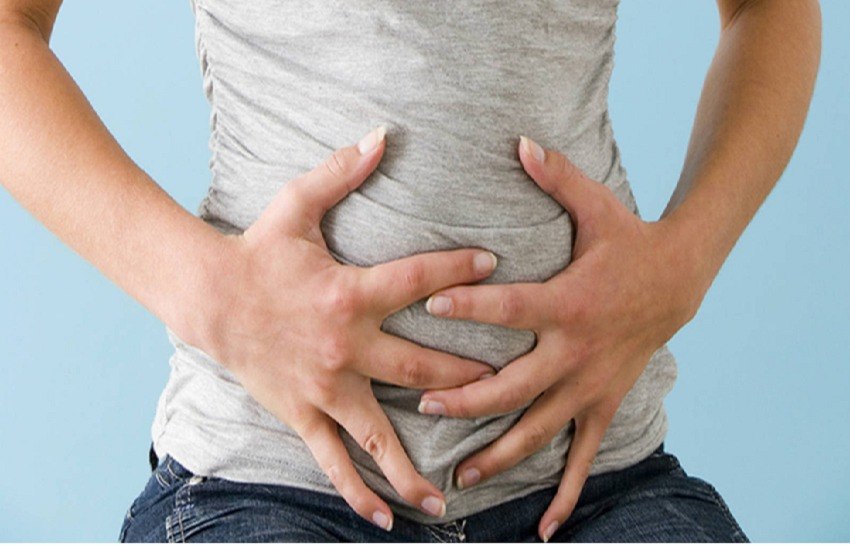8 Proven Tips For Eliminating Bloated Stomach
 Health & Fitness
Health & Fitness
Ever feel like you have gained a lot of weight after eating a meal? This is called bloating. Bloating is the condition of your belly feeling inflated after eating. Bloated Stomach is a common problem. About 25-30% people experience bloating regularly. It not only looks bad, it can also cause physical discomfort.
Bloating is usually caused by excess gas production and air swallowing.
Here are 8 proven tips to help you reduce or eliminate bloated stomach
Avoid Constipation
Constipation is a common digestive problem. Too little fiber, fluids, and physical activity can lead to constipation.
Studies suggest that bloating can often be the result of constipation.
To avoid this, eat a diet high in soluble fibre. 38 grams fibre per day for men and 25 grams per day for women is recommended. But if you have gas, increase fibre in your diet with caution. It can often make things worse.
Also, drink plenty of fluids and increases your physical activity to at least 30 minutes a day, 5 times a week.
You can also try magnesium supplements for constipation.
Rule Out Food Allergies and Lactose Intolerance
Food allergies and lactose intolerance are very common. If you eat food you are intolerant to, it can cause bloating and gassiness.
Here are some common food allergies and intolerance –
Lactose – Lactose is the main carbohydrate in milk. It is associated with bloating.
Eggs – Egg allergy is associated with gas and bloating.
Wheat and Gluten – Wheat allergies and gluten intolerance are very common. This can lead to bloating.
If you suspect, you have any intolerance, go to a doctor for tests. Don’t self-diagnose. Many people self-diagnose and eliminate healthy foods from their diet unnecessarily.
If you have any intolerance, you might not have to completely overhaul your diet. You can replace them with healthy alternatives. For example, you can replace dairy milk with soy or almond milk if you have lactose intolerance. You can also choose aged cheese or yogurt. They are low in lactose. If you have gluten intolerance, there are lots of gluten-free bread, pasta, and cereals.
Eat Smaller Meals More Often
Feeling stuffed can feel the same as feeling bloated. To avoid this feeling, try smaller portions. Instead of eating three big meals per day, eat smaller meals more often. This way, you won’t feel the bloated feeling you often feel after a large meal. It can also help control blood sugar and hunger.
So go from eating three meals to five or six meals each day. But make sure the quantity and calories are the same amounts. You will feel better after each meal because you aren’t digesting too much at a time.
Limit Salt
Sodium can lead to bloating. Sodium holds water and water retention plays a part in bloating. Excess water in the body can affect blood pressure and make you bloated.
Cutting out sodium will reduce your chance of water retention. So get in the habit of reading the food label. Shoot for no more than 1,500 to 2,300 mg of sodium per day. Canned, and frozen foods tend to be high in sodium. Don’t buy any product that has more than 500 mg sodium per servings. Look for food that has “sodium free,” or “low sodium” label.
Watch Out For Sugar Alcohol
Too much sugar can be bad for you. So companies often use “sugar alcohol” in place of sugar. They are considered safe alternatives to sugar. But they can cause digestive problem.
Your intestine contains a lot of bacteria that helps with digestion. When sugar alcohol reaches the bacterias in the large intestine, those bacterias digests them and produce gas. This results in bloatedness.
So always look for sugar-free food. And try to avoid sugar alcohol such as xylitol, sorbitol, mannitol, and erythritol. Erythritol may not be as bad as the others, but it can cause problems in large doses.
Be Careful With Carbonated Beverage
Gas is a major cause of bloating. There are two sources of gas in the digestive system. One is gas produced by bacteria in the body. There other is air or gas you swallow.
Carbonated beverage is a big offender when it comes to gas swallowing. They contain bubbles with carbon dioxide. When you are drinking soda, you are also swallowing bubbles with carbon dioxide. This extra gas can cause a serious bloating.
So stop drinking soda and other carbonated beverages. Drink lemon water instead. Try peppermint tea sometimes. It may help reduce bloating.
Be Careful How You Eat
Air swallowing can cause bloating. You can swallow air in the process of eating and drinking.
To avoid air swallowing –
Eat Slowly – Chew slowly with your mouth closed. It will reduce the amount of air you swallow. Also, digestion begins in the mouth. So you can decrease bloating just by chewing your food more.
There is another benefit of eating slowly. Studies suggest that if you eat slowly, you may end up eating less than usual.
Don’t use a straw – Not drinking through a straw reduces air swallowing. Also don’t breath and drink at the same time.
Cut back on gum – Chewing gum is an easy way to swallow air. So try to cut back on gum chewing.
Eat Anti-Bloating Foods and Drinks
According to a few studies, probiotics may help reduce bloating. Peppermint tea, ginger, pineapple, parsley, and yogurts contain probiotics that help reduce bloating.
These are all safe foods. They have many health benefits. So there are no reason not to try them and see if they help you de-bloat.
Conclusion
You shouldn’t fast, skip meals or use pills to reduce bloating. If you are trying to flatten your belly for the long term, lose some weight. There is no better alternative.
Ab exercise also won’t get rid of belly fat. But it will strengthen your abdominal muscle which can help your belly appear flat.
Do you struggle with bloating? What steps are you taking to solve it?
Source: healthsecretsac.com




